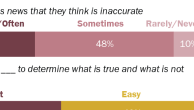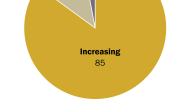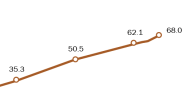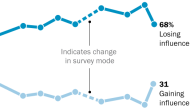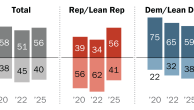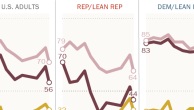
How Americans’ trust in information from news organizations and social media sites has changed over time
Overall, 56% of U.S. adults now say they have a lot of or some trust in the information they get from national news organizations – down 11 percentage points since March 2025.
